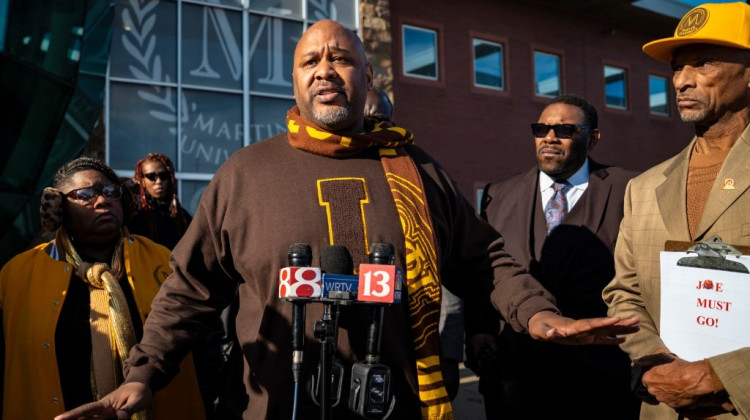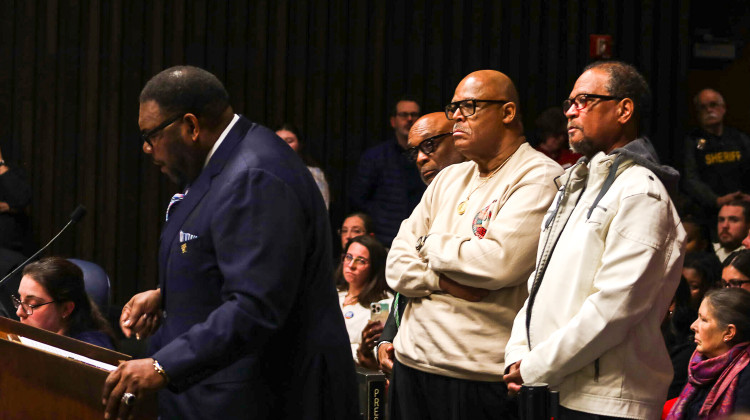
Indiana University professor Jessica Calarco studies inequality in schools and says lengthy school closures are hard for families with limited resources, especially if they have young kids at home.
Lauren Chapman/IPB NewsMany closed schools are adapting lessons to continue online or with other take-home materials, but one expert says expecting all students to keep learning at the same pace from home can widen existing equity gaps in education.
With planned spring breaks and new COVID-19 related closures, Hoosier students will be out of class for six weeks or more. Many districts are using paper packets and e-learning days to help fill the time and continue student learning.
Indiana University professor Jessica Calarco studies the relationship between school-related inequality and societal inequality impacts on families. And she says, having all the necessary tools to do regular school work from home – like a working laptop or tablet and an internet connection – is tougher for low-income kids.
"Because they don't have the resources to buy the fancy new devices or replace them when they start to break or become less usable," she says.
A Pew Research study from 2015 shows more than one third of low-income students don't have home internet. And according to state data, the number of homeless students in Indiana has nearly doubled in the past decade.
LEE MAS: ¿Qué Necesita Saber Acerca Del Coronavirus? Tenemos Respuestas.
READ MORE: What Do You Need To Know About Coronavirus? We’ve Got Answers.
Even for kids who do have the tools to do schoolwork from home, they might be short on the right type and amount of support they're used to getting with teachers in their classroom.
Calarco says many expectations fall on parents to help kids with school work, even when schools are operating normally. But she says some working parents might not have enough time to help, may not know the material, or both.
"Another working-class mom that I talked to, she was almost in tears telling me about how she wanted to be able to help her fifth grade son with homework, and especially with math homework, but she just, she couldn't – she was like 'it's algebra in 5th grade, and I don't – I can't make sense of this,'" she says.
Calarco says it's essential to prioritize equity, with additional school demands being suddenly placed on families.
"The ones being expected to continue going to work physically and supporting our economy and supporting our society – making sure that those families aren't put under additional pressure from school," she says.
Education officials have worked to reduce the pressure on schools in light of the COVID-19 closures. Gov. Eric Holcomb announced this week that state assessments like the IREAD-3, ILEARN and ISTEP+ are canceled this year.
Contact Jeanie at jlindsa@iu.edu or follow her on Twitter at @jeanjeanielindz.
This is a rapidly evolving story, and we are working hard to bring you the most up-to-date information. However, we recommend checking the websites of the Centers for Disease Control and Prevention or the Indiana State Department of Health for the most recent numbers of COVID-19 cases.
 DONATE
DONATE








 Support WFYI. We can't do it without you.
Support WFYI. We can't do it without you.